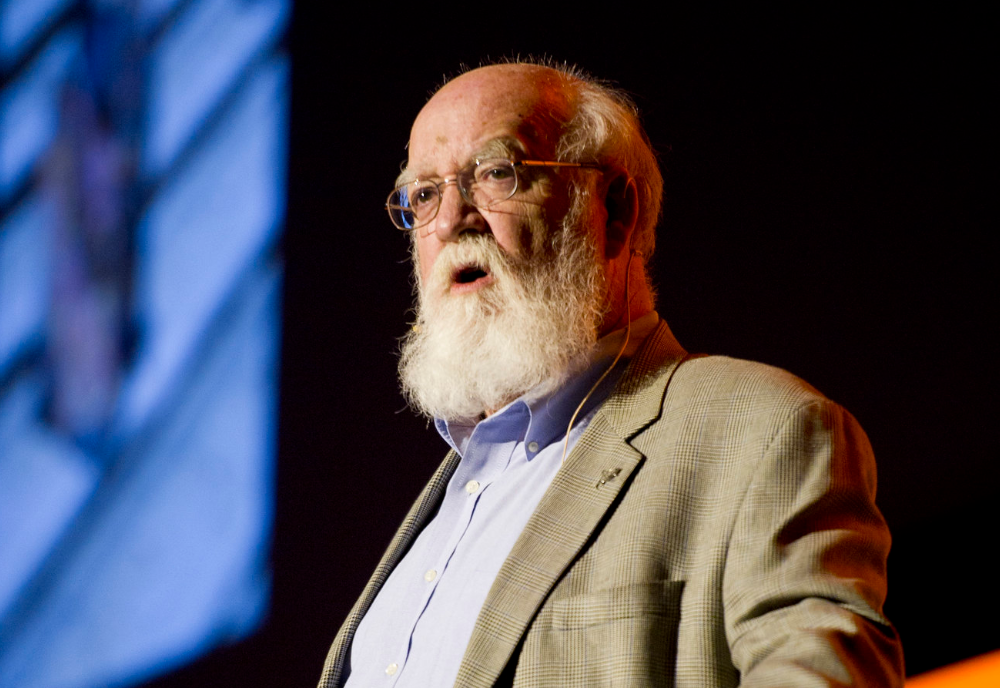Is there a necessary connection between being a rationalist and being an atheist? To answer this, we must tease out what we mean by ‘rationalist’, at least as the term applies to the Rationalist Society of Australia.
The word ‘rationalist’ came into currency as a characterisation of the theories of knowledge held by the so-called Rationalist Philosophers of the 17th century – notably René Descartes (1596-1650), Benedict Spinoza (1632-1677) and Gottfried Leibniz (1646-1716).
These thinkers held that the general nature of the world could be established a priori by demonstrative reason. They believed that our central concepts are derived not from experience but from reasoning.
In this sense, it is the opposite of empiricism, the theory principally associated with John Locke (1632-1704) and David Hume (1711-1776) which held that all our concepts derive from sensory experience and that knowledge is only verifiable by reference to sensory experience. This is the underlying epistemology of modern science and one might even claim, modern civilisation.
Perversely, the late 19th century movement of freethinkers and secularists in England who called themselves ‘Rationalists’ grew out of the second tradition, rather than the first. They embraced empiricism. For them, reason and logic were opposed not to empirical evidence but to irrational beliefs, especially about the supernatural, and to the arbitrary authority of the Established Church and other conservative institutions.
When in 1885 members of the movement set up in London what was to become the Rationalist Press Association (RPA) and, eventually, the Rationalist Association, their target was clear. They defined rationalism as “the attitude of mind which unreservedly accepts the supremacy of reason, and aims at establishing a system of philosophy and ethics independent of all arbitrary assumptions or authority”.
The RPA and its publications were highly influential in the formation in Melbourne in 1906 of the group that became the Rationalist Society of Australia.
Despite its name, the rationalist movement was more than just a club to promote what used to be called “clear thinking”. It embraced empiricism, materialism and naturalism, which held that the material world is the only world there is. And it also had roots in another radical movement of the time – humanism. Indeed, the RPA/RA journal is called the New Humanist. So we might say the three pillars of rationalism, both in Great Britain and here in Australia, are naturalism, humanism and rationality.
First, rationalists accept the basic worldview of naturalism, which has been conveniently summarised by American philosopher John Searle:
- There is a real world that exists independently of us, independently of our experiences, our thoughts, our language.
- We have direct perceptual access to that world through our senses, especially touch and vision.
- Words in our language, like ‘rabbit’ or ‘tree’, typically have reasonably clear meanings. Because of their meanings, they can be used to refer to and talk about real objects in the world.
- Our statements are typically true or false depending on whether they correspond to how things are – that is, to the facts in the world.
- Causation is a real relation among objects and events in the world – a relation whereby one phenomenon, the cause, causes another, the effect.
Rationalists are also humanists in the sense that they believe that human beings create their own meanings and their own purposes, rather than receiving them from the gods or God, and they evolve their own values and ethical principals from the necessity of human beings living together, principles without which society could not operate, and which it is therefore rational to adhere to.
These principles get their warrant from what Raimond Gaita has called our ‘common humanity’. These basic human values have been conveniently summarised by the American rationalist and philosopher Paul Kurtz as what he calls the ‘moral decencies’. First are the moral decencies that involve personal integrity: telling the truth, not lying or being deceitful; being sincere, candid, frank, and free of hypocrisy; keeping one’s promises, honoring pledges, living up to agreements; and being honest, avoiding fraud or skullduggery.
Second is trustworthiness. We manifest loyalty to our relatives, friends, and coworkers, and we should be dependable, someone they can count on, reliable, and responsible.
Third are the decencies of benevolence, which involve manifesting goodwill and noble intentions toward other human beings and having a positive concern for them. It means: the lack of malice (non-malfeasance); avoiding doing harm to other persons or their property. We should not kill, rob or inflict physical violence or injury, or be cruel, abusive, or vengeful.
In the sexual domain, it means that we should not force our sexual passions on others and should seek mutual consent between adults. It means that we have an obligation to be beneficent – that is, kind, sympathetic, compassionate. We should lend a helping hand to those in distress and try to decrease their pain and suffering and contribute positively to their welfare.
Fourth is the principle of fairness. We should show gratitude and appreciation for those who are deserving of it. A civilised community will hold people accountable for their deeds, insisting that those who wrong others do not go completely unpunished and perhaps must make reparations to the aggrieved. This also involves the principle of justice and equality in society.
Tolerance is also a basic moral decency. We should allow other individuals the right to their beliefs, values, and styles of life, even though they may differ from our own. We may not agree with them, but each individual is entitled to his convictions as long as he does not harm others or prevent them from exercising their rights. We should try to cooperate with others, seeking to negotiate differences peacefully without resorting to hatred or violence.
Anyone who approaches life from a humanist point of view will strive to put these principles or principles like them into action in their own lives, and to work towards social, political and economic structures that facilitate and embody them.
Last, but not least, rationalists are committed to rationality, both in their beliefs and in their behaviour. In forming their beliefs, a rational person relies on empirical evidence, logic and thoughtful reflection, not on unthinking obedience to authority, blind faith or mere guesswork.
In forming their beliefs, a rational person relies on empirical evidence, logic and thoughtful reflection, not on unthinking obedience to authority, blind faith or mere guesswork.
Thinking rationally involves a number of key aspects. It involves thinking that is consistent with the laws of deductive logic, and accepting such inferences as are involved in chains of deductive reasoning, such as “all humans are mortal/Socrates is a human/therefore Socrates is mortal”, and that from “everything has a cause” it does not follow that “there is a (single) cause of everything”.
It involves understanding the logical implications of the meanings of words – for example, if Jacob is a bachelor it implies that Jacob is not married.
It involves understanding the principles of inductive logic – that is, being able to reach factual generalisations from observational and experimental data, and being alert to both the possible sources of error, including sample size and bias, observer bias, confirmation bias, etc, and to ways to guard against error, such as testing beliefs, multiple trials and double-blind experiment protocols.
It involves understanding how the laws of probability and statistics govern the drawing of conclusions from empirical data. For example, if, as is the case, a large number of people every night have dreams involving a threat to or the death of a loved one, then rationally no significance can be attached to the fact that every now and again one of the people dreamed about actually does die. Indeed, it would be anomalous and in need of explanation if this did not happen – if not one of the many people who were dreamed about ever died.
It involves being aware of and taking steps to minimise common sources of human error in reasoning, such as social and cultural biases, self-interest, limitations of memory and unconscious urges and desires.
Behaving rationally involves: deciding on goals and needs that the evidence and logic suggest are likely to enhance one’s well-being and survival; acting in a way that the evidence and logic suggest is likely to achieve one’s goals and needs; acting so as to treat other human beings as ends in themselves rather than as means to your own ends; acting in such a way as to improve and enhance the environment in which you love that supports and sustains you.
This is not to say that being a rationalist guarantees that you will so believe and so behave. This ought to be the aim of a rational person, but rationalists are as subject to the frailties of human nature as the next person.
Given rationalism’s foundation on the three pillars of naturalism, humanism and rationality, is there any room for a rationalist to be a theist?
Humanism does not by definition rule out theism. Some humanists are agnostics, and there have even been people who call themselves ‘Christian humanists’. Some believe that rationality rules out theism. While I tend to agree with them, it is a highly contested area, and thinkers like Richard Swinburne in England and William Lane Craig in the US have argued vehemently that their belief in God is rational.
However, the part of the rationalist edifice on which theism indubitably founders is naturalism, according to which nothing exists except the natural world. So there is no room for god, or the supernatural in any form.
Because being rational and being swayed by the evidence are generally thought to be good things, believers in the supernatural have frequently attempted to pry rationalism away from naturalism and into their own camp in a number of ways.
Up until the time of Darwin, the apparent well-designed character of the natural world could persuade some believers in naturalism that a higher power might to that extent be involved. But Darwin showed the apparent orderliness of nature could be explained by natural causes, in particular, natural selection.
Darwin showed the apparent orderliness of nature could be explained by natural causes, in particular, natural selection.
So despite some recent attempts to revive it, this has been an unacceptable line of argument for the past 150 years. Contemporary transcendentalists attempt to find a crack in naturalism at either the macro or the micro levels. Ultimately, they fail for one or both of two reasons: (1) they misunderstand the science; or (2) they beg the question – the argument can only be stated by assuming that a transcendental entity called ‘God’ is a meaningful concept, and this is what the atheist denies.
At the macro level, transcendentalists point to the uncertainties in science’s account of the origin of the universe, particularly around the so-called Big Bang, and suggest that this leaves the door open for God. But this assumes what it is trying to prove – that a supernatural God is a logical possibility, which is what naturalism rules out. The arguments that assume what they are trying to prove commit the logical fallacy of petitio principii.
At the micro level, the level of subatomic particles and quantum theory, there is so much that is still contested or simply not known that it is a prolific hunting ground for those who wish to salvage some vestiges of the supernatural from the uncompromisingly materialistic universe of science.
The postmodernists seized on Heisenberg’s ‘uncertainty principle’ to argue that, because Heisenberg says nothing is certain, then truth is relative. But, if they’d bothered to try to understand the science, they would have realised that the ‘uncertainty principle’ could have just as easily been called the ‘certainty principle’ because, basically, what it says is that if you are certain of one aspect then at that moment you can’t be certain about the other, and vice versa. You can’t accurately measure mass and velocity at the same time. But you can be certain of one of them.
Other aspects of quantum theory are also misunderstood by transcendentalists. For example, they make a big fuss about so-called ‘wave-particle’ duality of light. This in not an ontological paradox but merely a function of how one tries to measure the light. Measured in a crude way, light may seem to behave like a wave. But modern measurement techniques have established that there is no doubt that light is made up of particles called photons. In the authoritative words of Richard Feynman: “I want to emphasize that light comes in this form – particles. It is very important to know that light behaves like particles, especially for those of you who have gone to school, where you were probably told something about light behaving like waves. I’m telling you the way it does behave – like particles.”
So no mysterious contradictions are involved and no transcendental conclusions can be drawn.
This is not the place to go into a more detailed discussion of the distortions of, omissions from and unjustified extensions to quantum theory perpetrated by the many deluded New Age gurus such as Depak Chopra and Amit Goswami. Mathematical physicist Professor John Polkinghorne calls such caricatures of science ‘quantum hype’. For more information, I refer the interested reader to the excellent book by Victor Stenger: Quantum Gods: Creation, Chaos, and the Search for Cosmic Consciousness. For now it suffices to affirm that there is no comfort for transcendentalism or theism in quantum mechanics.
Between these two extremes, the macro and the micro, some transcendentalists have opened up a third front around the contested notion of consciousness. This is another area in which science does not have all the answers. But again, without going into detail, the fact that science cannot yet explain something does not imply that the explanation must lie outside science.
Over the centuries science has a very good record of finding naturalistic explanations for a wide variety of phenomenon that seemed at an earlier time intractable. There is no reason to suppose it will not continue to do so.
So there are no transcendental fissures in the edifice of naturalism. And because rationalists are ipso facto naturalists they can never be theists and by definition must be atheists (or at the very least agnostics).
We accept that, in an infinite universe, there will always be things we naturalists don’t know yet. We should never expect to have all the answers. Each new solution opens up new horizons of uncertainty. This is one of the things that makes science, being human and being alive today so exciting, and one of the joys of being a rationalist.
This article is part of our ‘The season for reason’ series of holiday reading focusing on rationalism and reason. It was originally published in the Autumn 2014 edition of Australian Rationalist.








Another excellent article, thanks Ian.
You suggest –
……….the rationalist movement was more than just a club to promote what used to be called “clear thinking”. It embraced empiricism, materialism and naturalism, which held that the material world is the only world there is.
I agree fully. Naturalism, materialism, and empiricism are the ‘grounding’ for rationalist thinking. We know how theologians through the ages have provided the ‘grounding’ in the super-natural world for the Doctrinal Religions through the interpretation of scripture, but with the decline of religious practice and belief I was wondering whether there was an opening now for a ‘Biologian’ to step in and take up the challenge. Instead of being based on ancient scripture such grounding would be thoroughly in the natural world.
As with many rationalists, I’m sure, I am very concerned about the state of our world with brutal wars, threats of further pandemics, racism, caste, colonialism, sexism, misogyny, and violence against women and children, the threat of mass extinctions and drastic climate change. So, I have developed the following ‘A Biologian’s Workbook’ to hopefully assist as a grounding framework for open rationalist discussion –
A Biologian’s Workbook Introduction and Overview. https://www.dropbox.com/s/vd4dsap378lcp6l/A_A%20Biologians%20Workbook_Introduction%20and%20Overview.html?dl=0
A Biologian’s Workbook Part 1: An Outline of the Origins and Evolution of Religion and the Beginnings of Enlightenment. https://www.dropbox.com/s/r5y3atc42aq7rvm/B_A%20Biologians%20Workbook_Part%201.html?dl=0
A Biologian’s Workbook Part 2: An Outline of the Origins of the Human Family. https://www.dropbox.com/s/uqglvs8r7jhjwyq/C_A%20Biologians%20Workbook_Part%202.html?dl=0
A Biologian’s Workbook Part 3: An Overview of Human, Primate and Other Animal Reproductive Strategies and Behaviours. https://www.dropbox.com/s/14hdyueapxr8dxt/D_A%20Biologians%20Workbook_Part%203.html?dl=0
Ian, I would really appreciate any feedback or ideas you may have on this crazy idea.
Ric Streatfield